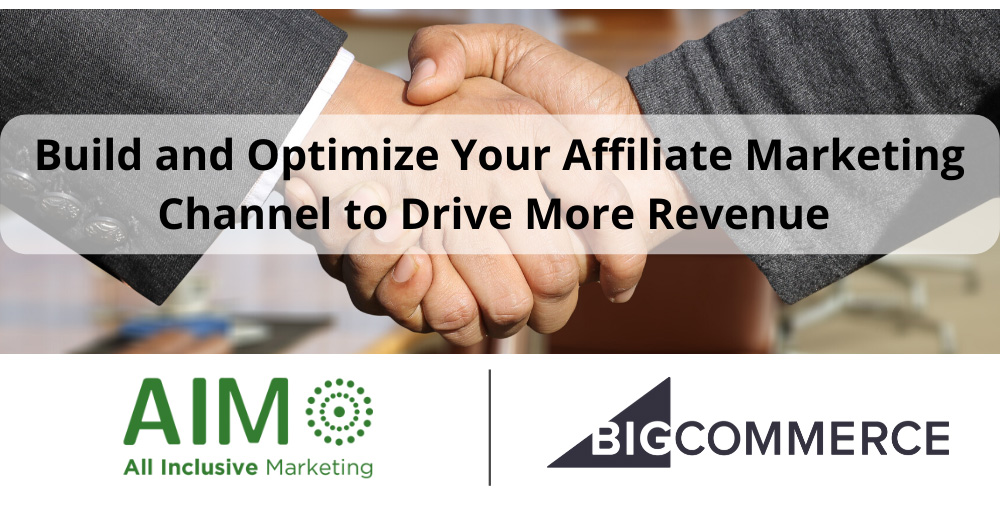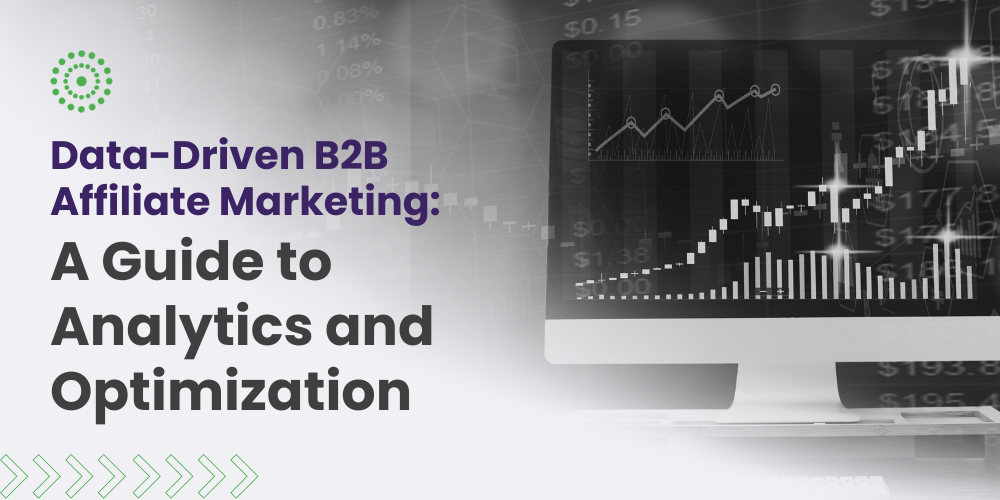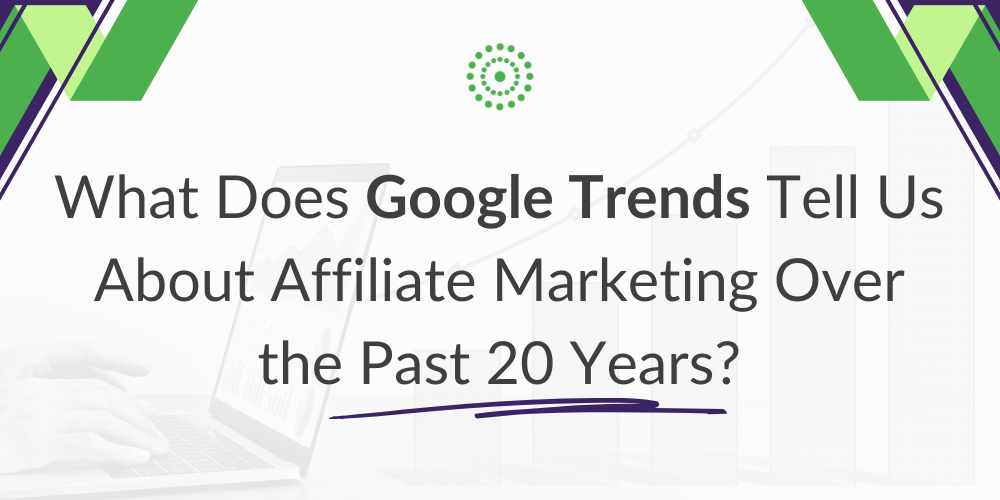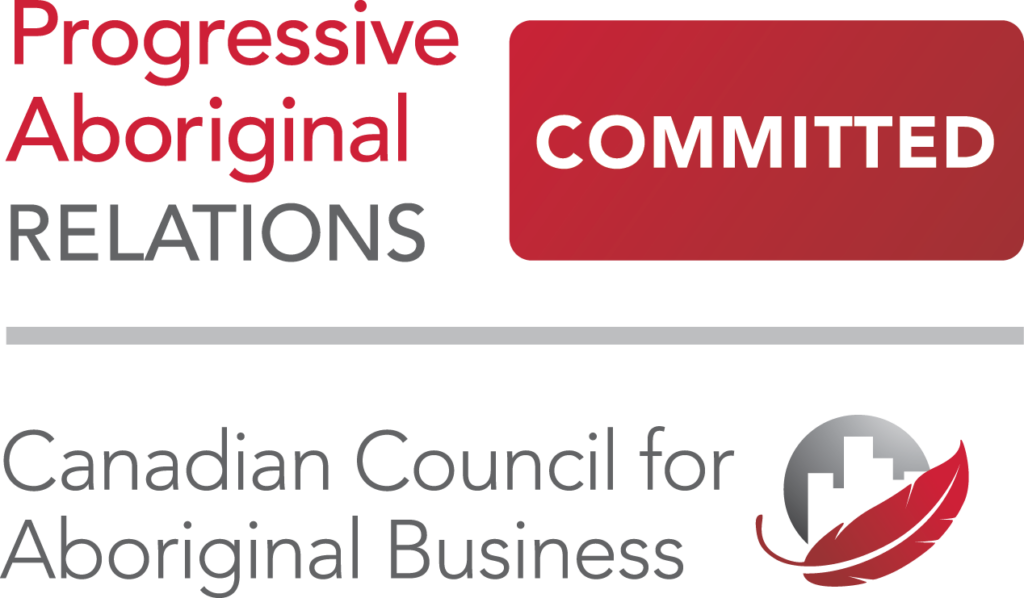Back in September of this year, All Inclusive Marketing CEO, Sarah, had the honor of participating in BigCommerce’s Make It Big Conference.
As a leading eCommerce platform, BigCommerce powers over 60,000 small business eCommerce companies, plus large brands including GE, Toyota, Kodak, Camelbak, and Paul Mitchell. While supporting thousands of B2B and B2C companies around the world since 2009, BigCommerce decided it was time to take things a step further with one of the biggest online eCommerce conferences available, Make It Big.
Leading eCommerce specialists, merchants, and BigCommerce experts came together this year to share strategies, best practices, and detailed tactics over the course of three days.
Below is Sarah’s interview on how to Build and Optimize Your Affiliate Marketing Channel to Drive More Revenue in case you missed it. Please take a moment to watch and read our 10 key takeaways from her insightful interview.
https://bigcommerce.wistia.com/medias/fo2tfsfde3
Our 10 Key Takeaways for easy reference…
1. The Affiliate Industry Has Grown: When one thinks about affiliate marketing, the usual and more traditional players come to mind – coupon, loyalty, and review sites. However, the industry as grown drastically over the years with many new players entering the space. Many top-of-funnel partners like bloggers, social influencers, and technology sites are becoming important partners to have a successful program. Affiliate marketing is a vast ecosystem that has evolved, with traditional media even starting to develop their models to enter the affiliate marketing space.
2. Find Experts You Need: Affiliate marketing is a great way to grow your business with little to no upfront cost and low risk. It’s a strategy that allows you to work with people and/or companies that can reach consumers and do things you might not be able to do on your own.
3. Utilize Affiliate Marketing Whenever You Need It: While it is recommended to generate a certain baseline of revenue or conversion rate (usually 1-2%) of AOV ($100+) before launching an affiliate program for best results, there isn’t really a bad time to include this growth approach into your business strategy.
In the beginning stages, affiliate marketing is a great way to increase your brand awareness and gain exposure to targeted audiences you haven’t been able to tap into yet.
In other stages, affiliate marketing is the answer when you feel you have maxed out other marketing channels (e.g. SEO, SEM, etc.) and are looking for alternatives to help your business grow.
4. Find a Network Right for Your Program: No matter when you decide to launch your program, getting the right technology in place is crucial. This is done through Affiliate Networks. There are numerous networks out there with expertise in specific niches, tools, and partnership types, so finding one that fits your program’s needs is important.
The purpose of these networks and the technology they provide is the ability to track your affiliate activity, pay your partners, house your program creatives, and more. All these things are vital to running a successful program.
Think of the network as your car, your agency or program manager the driver, and your affiliate partners the passengers. Your agency or program manager can’t do their job and get your partners where they need to be without a vehicle.
5. Measuring Affiliate Marketing Success: There are many ways to measure the success of a program, and it’s important to make sure you are gathering as much data as possible. Many businesses don’t look at the whole picture and end up thinking their affiliate program is not providing enough to warrant any further investment.
By tracking as much as possible a business will, in turn, get a better understanding of what’s working and what is not – helping to know what needs attention to generating the desired ROI.
Some examples of measurement to track: Total Revenue/Sales and Incremental Sales (AOV, conversion rate, and customer acquisitions).
6. Influencer Marketing: In the past, influencer marketing was a separate entity from affiliate marketing, conducting business in their own separate spaces. However, in the last 18 months especially, influencer and affiliate marketing have overlapped. Realizing that only being paid on each completed sponsorship deal over and over was not only tiresome for influencers but was also causing them to leave money on the table.
Adding affiliate marketing to their strategy allows influencers to earn extra passive income and make their work last longer, earning money long after it’s been completed. This realization and new trend are largely due to technology changes from networks moving from a last-click to a first-click/multi-click attribution model.
7. Long-Term Success: The truth is, affiliate marketing takes time to build up. With so many moving pieces and control in the hands of affiliates (time, placements, investment on their part, who their audience is, how they market their content), it makes it hard to make projections for a new program just getting started.
A good rule of thumb is to give a program 6-12 months to really get off the ground. That said, affiliate marketing tends to have one of the best performing and highest efficiency channels once that foundation is there. From there, it will only grow.
Tip: Generally speaking, Coupon/Loyalty are faster revenue-generating partners than content/influencer partnerships; however, there is a value to having a well-diverse mix of partners in your program.
8. Work as One: While the way affiliate marketing works might make you think it’s a whole separate unit that works alongside a business, it is not. Your affiliate marketing program should be a part of your brand’s overall strategy working towards specific objectives. It will be more successful as an extension of the brand, your other marketing strategies, and the customer’s journey.
9. The Customer Experience: For any business, knowing your customer/audience is key to driving sales and earning loyal buyers. There are many statistics proving the importance of this and tools to help discover your customer trends. However, affiliate marketing is a useful way to get to know your customers better with little added cost. Depending on how they have gotten to your site or how they’ve converted, you can find out who they are, where they discover your products, how they shop, and what personas cover your complete customer base. This information is key to appreciated personal customer experience.
80% of customers are more likely to purchase a product or service from a brand who provides personalized experiences. (source)
10. Program Management: Anyone can launch a program but managing a successful one is a whole different story. An affiliate program is not a set it and forget it type of strategy. It has a lot of parts to it and thrives on continuous analysis, proactive management, and continued testing.
There are three main options when it comes to managing your program – In-house, with an affiliate network, or through an Agency partner, such as AIM. It’s important to understand the model that best suits your needs. In some cases, you might even have a hybrid model, working with an in-house team, affiliate network, and agency partner.
Whichever suits your business and program best will oversee recruitment (the right partners), getting placements, driving activation campaigns (making sure partners are promoting correctly and know best practices), ensuring affiliates are following program Terms of Service, and more.
It’s a lot of manual work to find the right partnerships and to make sure you have updated assets, analytics in place, and fraud being detected. Every program needs an overall management team to truly focus on all the parts that make up a program and make sure things are consistently moving and growing.
Affiliate marketing is an amazing strategy for any business to grow, and with the right pieces in place, it can drive your business to the next level. On average, affiliate marketing tends to contribute between 10-30% of total sales. Thus, if you do not have an affiliate marketing program, or it’s performing under average range, you are likely leaving money on the table and great potential customers untouched.
We hope our recap helps you learn more about affiliate marketing and if you haven’t yet, watch the video to get even more details and expertise or add it to your watchlist for later.
If you’re looking for program management or would like to see if affiliate marketing is right for your business, please contact us today to speak to an expert.
Learn more about BigCommerce, what they have to offer, and keep an eye out for more insightful conferences and eCommerce articles here.










